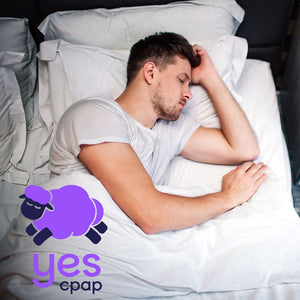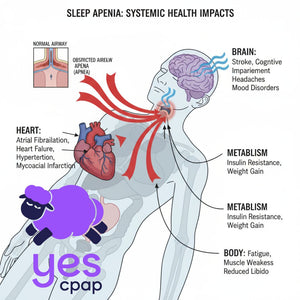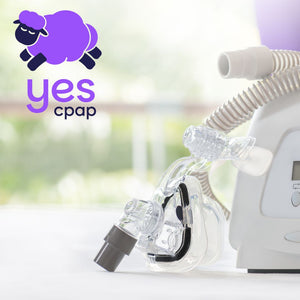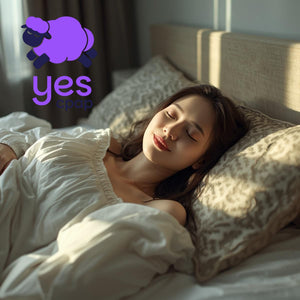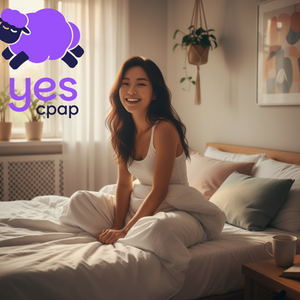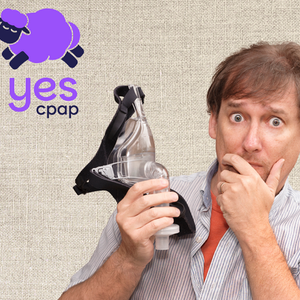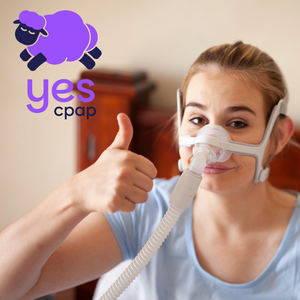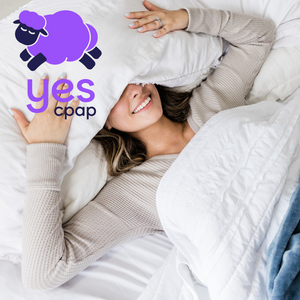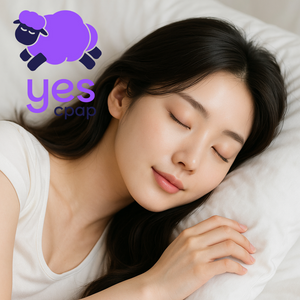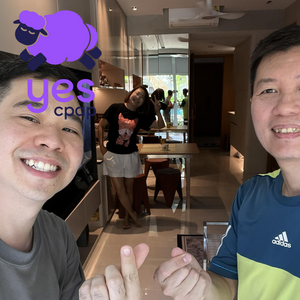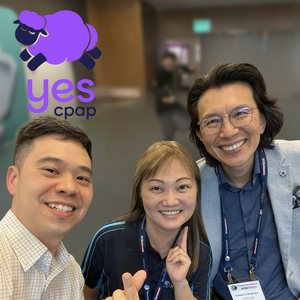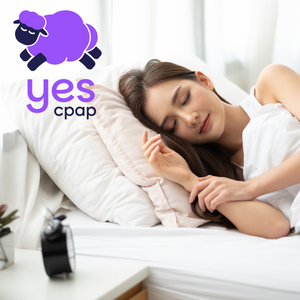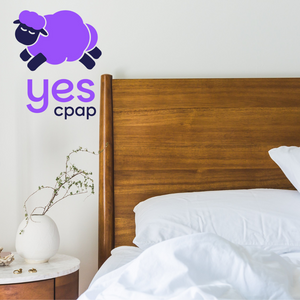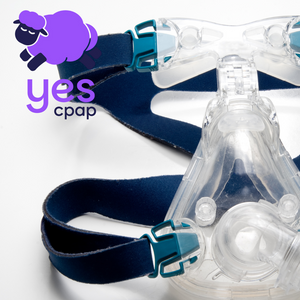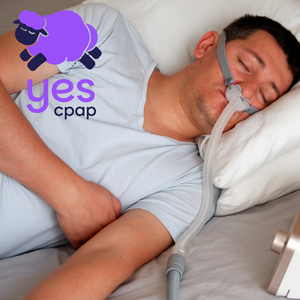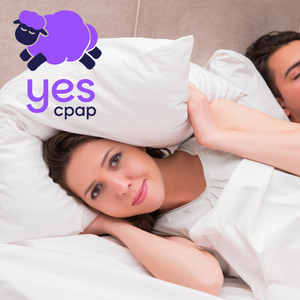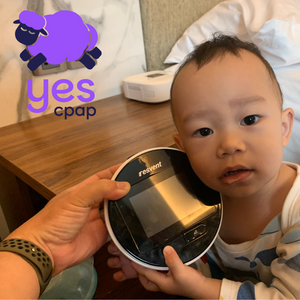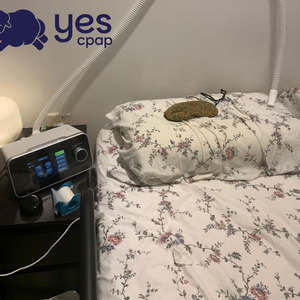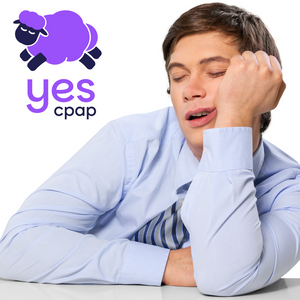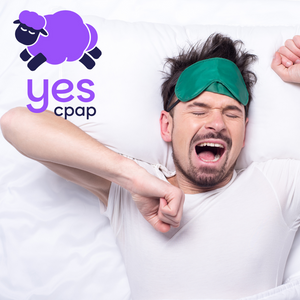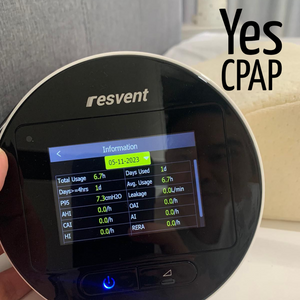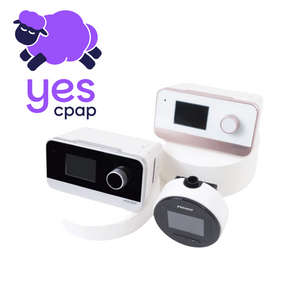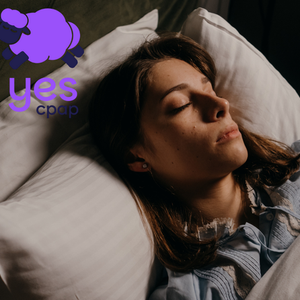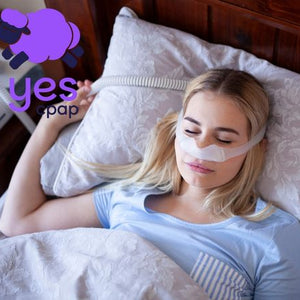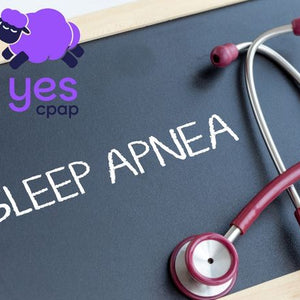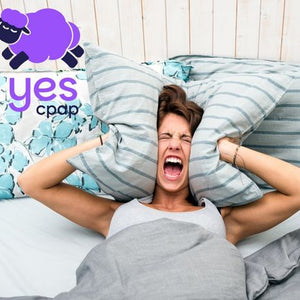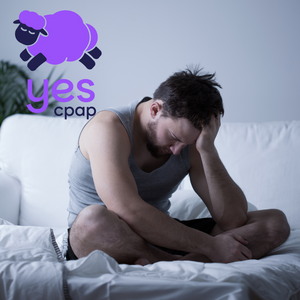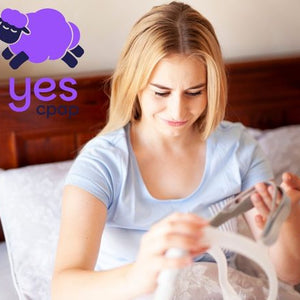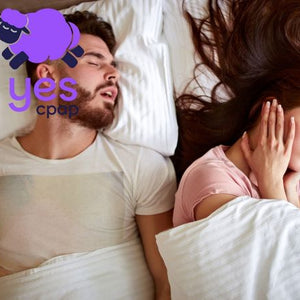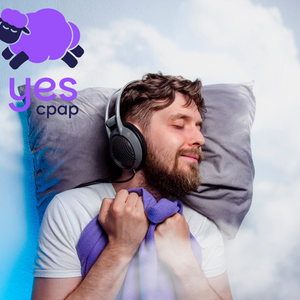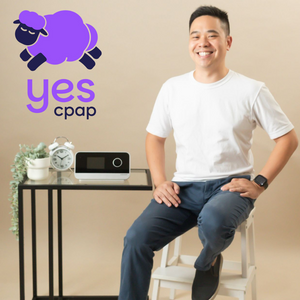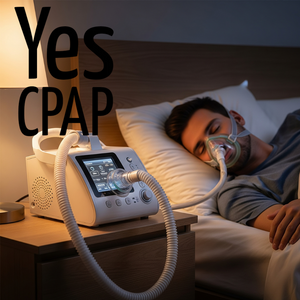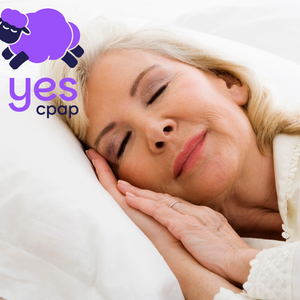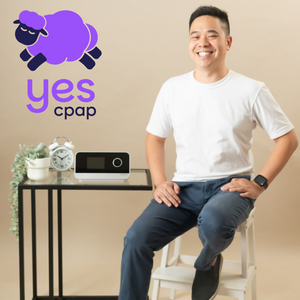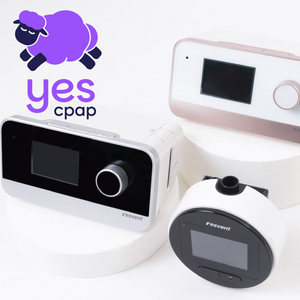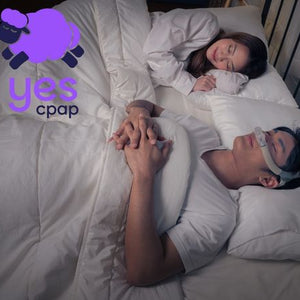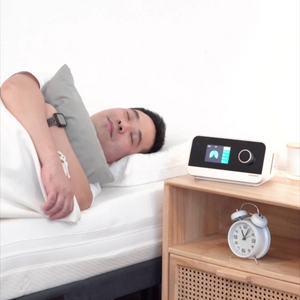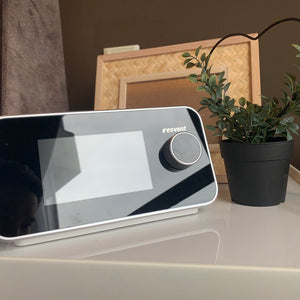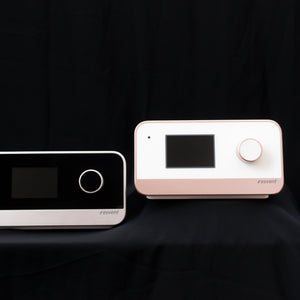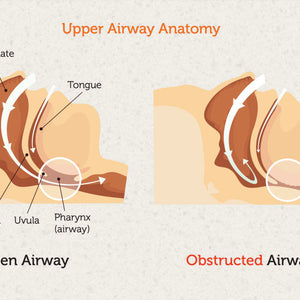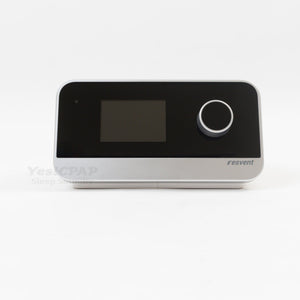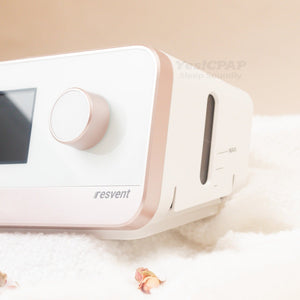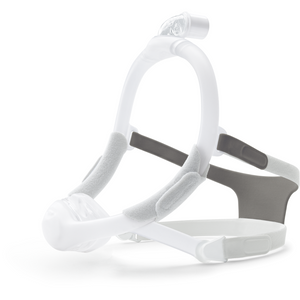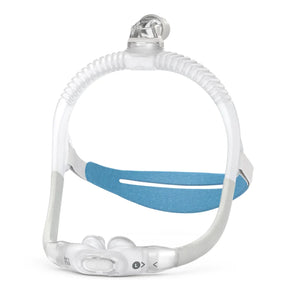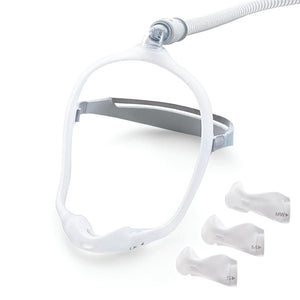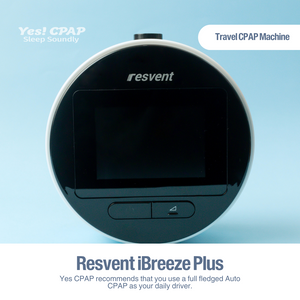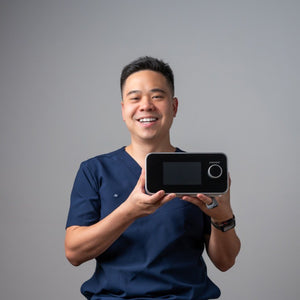Tired every morning despite sleeping 8 hours? You're not alone. Nearly one-third of Singaporeans battle sleep disorders daily, yet 91% remain undiagnosed.
Sleep problems have become Singapore's silent epidemic. However, understanding what's disrupting your rest is the first step toward reclaiming quality sleep and peak performance.
What Are Sleep Disorders? Singapore's Growing Health Crisis
Sleep disorders are medical conditions that prevent you from achieving restorative, quality sleep. Therefore, these conditions affect when you fall asleep, how long you stay asleep, and how refreshed you feel upon waking.
Moreover, sleep disorders extend far beyond occasional sleepless nights. Instead, they're persistent patterns that significantly impact your daily functioning, work performance, and overall health in Singapore's demanding environment.
The Most Common Sleep Disorders Affecting Singaporeans
Obstructive Sleep Apnea (OSA) dominates Singapore's sleep disorder landscape. Research from SingHealth's Duke-NUS Sleep Centre reveals that 30.5% of Singaporeans have moderate-to-severe obstructive sleep apnoea (OSA), with 91% of cases remaining undiagnosed.
Chronic Insomnia follows as the second most prevalent condition. Meanwhile, only 17% of Singaporeans get a full 8-9 hours of rest, with the majority averaging 6.4 hours of sleep per night - well below international health recommendations.
Shift Work Sleep Disorder particularly affects Singapore's 24/7 economy workers. Furthermore, irregular working schedules disrupt natural circadian rhythms, leading to fragmented sleep patterns.
Sleep-Related Breathing Disorders continue rising among Singapore's aging population. Additionally, lifestyle factors unique to urban Singapore contribute to increased prevalence rates.
Singapore's Unique Sleep Challenges: Why Quality Rest Eludes Us
1. The "Always On" Work Culture Crisis
Singapore's relentless work environment creates unprecedented sleep disruption. 92% of working Singaporeans are stressed, while 85% of employees felt at risk of burnout - rates significantly higher than regional averages.
Additionally, most white-collar participants worked more than 44 hours per week without additional remuneration. As a result, extended working hours leave insufficient time for proper sleep hygiene practices.
Therefore, Singapore's productivity-focused culture inadvertently undermines the very rest needed for sustained high performance.
2. Environmental Sleep Disruptors in Urban Singapore
Singapore's dense urban landscape presents unique challenges to quality sleep. For instance, Singapore is the country with the highest concentration of light pollution in the world, disrupting natural melatonin production.
Moreover, noise pollution remains an issue in many residential areas partly due to ongoing construction and traffic. Consequently, continuous background noise prevents the deep sleep phases crucial for memory consolidation and physical recovery.
Additionally, Singapore's urban heat island effect leads to higher nighttime temperatures, further compromising sleep comfort and quality.
3. The Revenge Bedtime Procrastination Phenomenon
Many Singaporeans fall into "revenge bedtime procrastination" - deliberately staying up late to reclaim personal time. This phenomenon describes workers who stay up late to get some freedom over their leisure time.
However, this behavior occurs when people feel they lack control over their daytime schedules. Therefore, they sacrifice sleep to regain some sense of personal autonomy during night hours.
4. Lifestyle and Cultural Factors Disrupting Sleep
Singapore's renowned food culture impacts sleep patterns significantly. 77.3% of Singaporeans usually have at least one meal outside of the home, often consuming heavier, processed foods that can disrupt sleep quality.
Furthermore, excessive caffeine consumption during long work hours and social engagements reduces sleep quality. Additionally, the timing and quantity of stimulant intake reduces the quality of sleep.
The Hidden Health and Economic Costs of Poor Sleep in Singapore
Immediate Physical Health Impact
Sleep deprivation wreaks devastating effects on your body's systems. When you do not get enough sleep, your body releases more of the stress hormone cortisol, which can break down collagen and accelerate aging.
Additionally, chronic sleep problems dramatically increase your risk of:
- Hypertension and cardiovascular disease
- Type 2 diabetes and metabolic syndrome
- Obesity and weight management issues
- Compromised immune system function
- Accelerated cellular aging processes
Mental Health and Cognitive Consequences
Nearly two in 10 Singaporeans suffered from mental health issues during Circuit Breaker, 40% of whom attributed this to sleep-related problems.
Sleep disorders also significantly contribute to:
- Clinical depression and anxiety disorders
- Severe memory consolidation problems
- Dramatically reduced concentration and focus
- Increased irritability and mood instability
- Substantially impaired work performance and decision-making
Staggering Economic Burden on Singapore
The economic impact reaches alarming proportions. Singapore's healthcare cost of stress alone hits a whopping US$2.3 billion, with sleep-related issues representing a significant portion.
Moreover, sleep-deprived workers experience exponentially higher rates of workplace accidents, reduced productivity, and increased absenteeism - creating ripple effects throughout Singapore's economy.
Comprehensive Solutions: Reclaiming Your Sleep in Singapore's Environment
1. World-Class Professional Sleep Medicine in Singapore
Singapore offers internationally recognized sleep disorder treatment facilities. The Sleep Centre in SGH is the largest in Singapore with the most comprehensive range of inpatient and outpatient services for sleep disorders.
Premier Sleep Centers Across Singapore:
- Singapore General Hospital Sleep Centre - Comprehensive multi-disciplinary care
- SingHealth Duke-NUS Sleep Centre - 6 clinical locations for convenient access
- Changi General Hospital Integrated Sleep Service - One-stop comprehensive care
- National University Hospital Sleep Centre - Advanced pediatric and adult services
- Ng Teng Fong General Hospital Sleep Laboratory - Specialized diagnostic services
For those seeking convenient, professional sleep testing, innovative solutions like YesCPAP's home sleep study services provide hospital-grade diagnostic accuracy from the comfort of your own bedroom.
Advanced Treatment Options Available:
- Comprehensive overnight sleep studies (polysomnography)
- Home-based sleep testing with professional setup
- CPAP and BiPAP therapy with ongoing support
- Custom oral appliances and mandibular advancement devices
- Minimally invasive surgical interventions when appropriate
- Cognitive behavioral therapy for chronic insomnia (CBT-I)
2. CPAP Therapy Solutions Optimized for Singapore's Climate
For diagnosed sleep apnea, CPAP therapy remains the gold standard treatment with success rates exceeding 95% when properly implemented. However, Singapore's tropical climate requires specialized equipment considerations.
Modern CPAP systems like those detailed in YesCPAP's comprehensive treatment guide feature advanced humidification and heated tubing technology specifically designed for Singapore's high humidity environment.
Essential Features for Singapore CPAP Users:
- Integrated humidification systems to prevent nasal dryness
- Heated tubing technology preventing condensation issues
- Auto-titration algorithms responding to real-time needs
- Whisper-quiet operation suitable for Singapore's close living quarters
- Universal power compatibility for Singapore's electrical standards
For comprehensive information about choosing the right equipment, Singapore's CPAP buying guide provides detailed comparisons of features and technologies.
3. Sleep Hygiene Strategies Tailored for Singapore
Climate-Optimized Environment Control:
- Maintain bedroom temperature between 20-22°C using efficient air conditioning
- Use dehumidifiers alongside AC to manage Singapore's 70-90% humidity levels
- Install blackout curtains to combat Singapore's intense light pollution
- Position beds away from external noise sources when possible
Noise Management in Urban Settings:
- Consider white noise machines or high-quality earplugs
- Use soft furnishings to absorb urban noise pollution
- Schedule sleep during quieter hours when possible
- Explore soundproofing solutions for severe noise issues
4. Lifestyle Modifications That Work in Singapore's Context
Strategic Exercise Timing: Exercise regularly but avoid vigorous activity within 2 hours of bedtime. Instead, utilize Singapore's extensive park connector network for morning or early evening workouts to beat the tropical heat.
Culturally-Adapted Dietary Adjustments:
- Limit caffeine consumption after 2 PM (allowing 10-14 hours for clearance)
- Choose lighter hawker center options for dinner, avoiding heavy, greasy foods
- Finish eating at least 3 hours before bedtime to aid digestion
- Stay well-hydrated throughout the day but reduce fluid intake 2 hours before sleep
Digital Wellness in Singapore's Connected Culture: Implement a comprehensive "digital curfew" at least 1 hour before bedtime. Moreover, remove electronic devices from bedrooms and use blue light blocking glasses after sunset.
5. Workplace Wellness and Stress Management
Professional Boundary Setting: Negotiate reasonable working hours through open communication with management. Furthermore, avoid checking work communications after designated evening hours.
Stress Reduction Techniques: Practice mindfulness meditation during lunch breaks using apps designed for busy professionals. Additionally, consider accessing counseling services through workplace Employee Assistance Programs (EAP).
Weekend Recovery Strategies: Use weekends strategically for moderate sleep debt recovery while maintaining consistent wake times. However, avoid sleeping more than 2 hours past your regular schedule to prevent circadian disruption.
Advanced Treatment Options: When Basic Solutions Aren't Enough
Professional Sleep Studies and Diagnosis
Modern sleep medicine in Singapore offers both traditional hospital-based studies and convenient home testing options. For instance, professional home sleep testing provides hospital-grade accuracy while allowing you to sleep in your familiar environment.
Specialized CPAP Therapy Programs
For those requiring CPAP treatment, Singapore offers comprehensive therapy programs with ongoing professional support. Programs include:
- Professional home installation by certified sleep technologists
- Personalized mask fitting services for optimal comfort
- Regular therapy monitoring and pressure optimization
- 24/7 WhatsApp support for troubleshooting and guidance
Alternative Treatment Approaches
Oral Appliance Therapy: Custom-fitted mandibular advancement devices work effectively for mild-to-moderate sleep apnea, particularly suitable for Singapore's diverse ethnic population with varying craniofacial structures.
Positional Sleep Therapy: Research shows many Singapore patients have position-dependent sleep apnea, making specialized positional therapy highly effective for specific cases.
When to Seek Immediate Professional Help
Critical Warning Signs Requiring Urgent Attention:
- Loud snoring accompanied by witnessed breathing pauses
- Excessive daytime sleepiness affecting work or driving safety
- Morning headaches occurring more than twice weekly
- Gasping or choking sensations during sleep
- Uncontrolled high blood pressure despite medication
- Memory problems or significant mood changes
Red Flag Symptoms Demanding Emergency Care:
- Microsleep episodes during work or driving
- Falling asleep involuntarily during conversations
- Severe morning confusion or disorientation
- Chest pain or irregular heartbeat during sleep
Creating Your Personalized Singapore Sleep Action Plan
Week 1: Comprehensive Assessment and Environment Optimization
- Track sleep patterns using smartphone apps or sleep diaries
- Evaluate and optimize your bedroom environment for Singapore's climate
- Schedule initial consultation with your family physician
- Consider professional home sleep testing if symptoms warrant
Week 2: Lifestyle Integration and Habit Formation
- Establish consistent bedtime and wake times suitable for Singapore's work culture
- Modify evening routines to accommodate Singapore's dining and social customs
- Adjust caffeine timing and meal schedules for optimal sleep preparation
- Implement digital wellness boundaries appropriate for Singapore's connected lifestyle
Week 3: Advanced Strategy Implementation
- Integrate proven stress reduction techniques into daily routines
- Fine-tune environmental controls for year-round Singapore climate
- Consider professional intervention if initial strategies prove insufficient
- Explore workplace wellness programs and EAP resources
Week 4: Long-term Sustainability and Monitoring
- Evaluate progress using objective sleep quality measures
- Adjust and refine strategies based on individual response patterns
- Plan for maintaining sleep health during Singapore's seasonal variations
- Schedule appropriate follow-up appointments with healthcare providers
Singapore's Comprehensive Sleep Health Resources
Government and Healthcare Initiatives
The Health Promotion Board actively promotes sleep health through workplace wellness programs targeting Singapore's unique work culture challenges. Meanwhile, public hospitals offer subsidized sleep studies and treatment for Singapore residents.
Insurance Coverage and Financial Support
Many private insurance plans provide coverage for sleep disorder diagnosis and treatment. Therefore, verify coverage details with your insurance provider before beginning treatment. Additionally, some services may qualify for Medisave coverage when medically necessary.
Community Support Networks
The Singapore Sleep Society provides valuable educational resources and patient support forums. Additionally, workplace wellness programs increasingly recognize sleep health as a productivity and wellness priority.
Professional Home-Based Services
For busy Singaporeans, professional home-based sleep services offer convenient alternatives to traditional hospital visits. Services include comprehensive sleep testing, CPAP setup and training, and ongoing therapy optimization - all delivered to your location across Singapore.
The Future of Sleep Medicine in Singapore
Singapore continues advancing sleep medicine research and clinical practice. Notably, World Sleep 2025 will be held in Singapore from September 5-10, 2025, featuring over 350 hours of presentations on cutting-edge sleep science and medicine.
Furthermore, technological innovations like advanced home sleep monitoring, telemedicine consultations, and AI-powered therapy optimization make effective treatment more accessible than ever for Singapore residents.
Emerging Treatment Technologies
- Hypoglossal nerve stimulation for CPAP-intolerant patients
- Precision medicine approaches using genetic testing
- AI-powered diagnostic tools improving home testing accuracy
- Combination therapies integrating multiple treatment modalities
Your Journey to Better Sleep Starts Today: Taking Action in Singapore
Sleep disorders don't have to control your life or limit your potential in Singapore's competitive environment. However, achieving lasting improvement requires commitment, appropriate professional guidance, and solutions tailored to Singapore's unique challenges.
Remember, quality sleep isn't a luxury in Singapore's fast-paced society—it's absolutely essential for optimal health, peak productivity, and long-term success. Therefore, prioritizing sleep health represents one of the most valuable investments you can make.
Immediate Action Steps for Singapore Residents:
- Honestly assess your current sleep quality using validated questionnaires
- Implement basic sleep hygiene practices immediately, adapted for Singapore's climate
- Consult qualified healthcare providers if problems persist beyond 2-3 weeks
- Explore Singapore's excellent sleep disorder treatment options without delay
- Consider convenient home-based testing if traditional clinic visits prove challenging
Professional Resources for Singapore Sleep Health:
- Comprehensive sleep apnea symptom assessment
- Professional sleep specialist consultations
- Complete guide to Singapore's sleep clinics
- CPAP vs BiPAP therapy comparison
Quality sleep is absolutely achievable in Singapore's challenging urban environment. Moreover, with the right strategies, professional support, and equipment optimized for tropical conditions, you can join the growing number of well-rested, high-performing Singaporeans who've made sleep health a priority.
Your best sleep begins with understanding what's disrupting your rest. Therefore, use this comprehensive guide as your roadmap to better sleep and dramatically improved quality of life in Singapore.
Medical Disclaimer: This article provides general information about sleep disorders and should not replace professional medical advice. Always consult qualified healthcare providers for personalized diagnosis and treatment plans. All treatment recommendations should be verified with licensed medical professionals.




